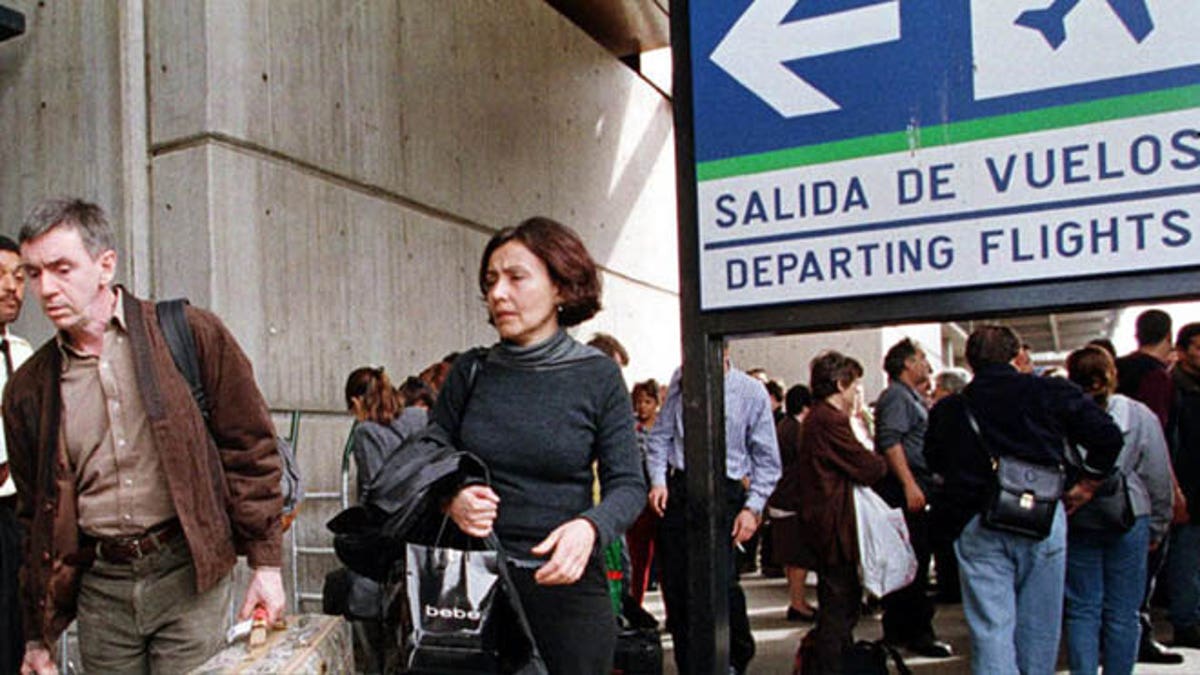
Alex Vasquez is a 28-year-old Venezuelan who has spent his vacations in Miami for years. Part of his family lives there, and he visits regularly during the summer. But that tradition is in danger.
Venezuelans now face tougher economic restrictions in traveling abroad.
The government is facing a shortage of dollars that worsened after oil prices fell at the end of 2014, so it has tried to keep the transactions in foreign currency to the minimum.
On top of that, the current administration has a debt of more than $4 billion with foreign airlines, which have reduced their flights in and out of the country to prevent the debt from growing bigger.
The reduction in the number of flights has caused air fares to skyrocket, and some airlines now require people to buy tickets in dollars—which makes them more expensive.
Those who want to visit the U.S. for one week have the right to buy $500 at the lower official rate of 12 bolívars per dollar.
Any other money that a traveler might need has to be bought at a higher rate of 196 bolívars per dollar, or in the black market where the exchange rate can go as high as 275 bolívars per dollar.
According to the local economic analysis firm Ecoanalitica, the monthly income of the average Venezuelans is 8,500 bolívars—about $700 at the official exchange, but only about $40 a month at the higher rate.
The price of an airplane ticket to Miami alone is more than $8,300—or about a year’s wages for the average Venezuelan.
Add in a hotel, rental car, gas, food and entertainment and a relatively economical one-week trip to Miami for one can run to as much as two years worth of wages. More if black market currency is used.
Souvenirs and fancy attractions like the Miami Seaquarium or a Heat game not included.
“It’s frustrating,” Vasquez told Fox News Latino. “Every day you have fewer options. I will not be able to travel this year unless my family in the U.S. gives me the plane ticket and lets me stay with them. This is all happening because of government’s mistakes and bad administration.
For other destinations like Colombia, Mexico and some Caribbean islands, the situation is similar. For a week in Europe, the government allows people to buy $1,000 at the lower exchange rate, but, of course, the airfare is even more expensive.
On the other hand, for Cuba and other allies of the Maduro regime, a government-owned airline offers cheaper tickets, and travelers can buy up to $1,000 at the lower rate for a one week trip.
Unfortunately, high demand makes it hard to arrange those trips.
Luza Medina, a 24-year-old Venezuelan with a brother living in Japan, fears that she won’t be able to see her sibling unless he travels all the way to Venezuela.
“In the past I would go to Japan, or we met at a middle point. Now it’s almost impossible to pay for a trip like that,” she lamented.
A plane ticket from Caracas to Tokyo costs more than $1,500, according to Delta Airlines.
A plane ticket from Caracas to Tokyo costs more than $1,500, according to Delta Airlines.
And, as Asdrubal Oliveros, director of Ecoanalitica, pointed out, “if they buy the plane tickets in dollars, something many people have had to do, the cost can climb” astronomically.
No wonder Oliveros told FNL that he believes travelling out of the country is now impossible for a middle-class Venezuelan family.
